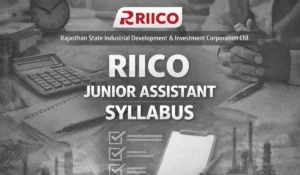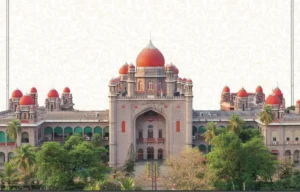| Subjects |
Topics |
| Electrical Engineering |
1. Basic Concepts
- Resistance (R)
- Inductance (L)
- Capacitance (C)
- Factors affecting them (e.g., material, geometry, temperature)
- Current (A), Voltage (V), Power (W), Energy (J or kWh)
2. Circuit Laws and Analysis
- Kirchhoff’s Laws:
- KCL (Current Law)
- KVL (Voltage Law)
- Thevenin’s, Norton’s, Superposition, Maximum Power Transfer
3. Magnetic Circuit
- Magnetic Flux (Φ)
- MMF
- Reluctance
- Types of magnetic materials
- For straight conductors
- Circular loops
- Solenoids
- Induction:
- Faraday’s Law
- Lenz’s Law
- Self & Mutual Inductance
4. AC Fundamentals
- Instantaneous
- Peak
- RMS
- Average values
- Phasor representation
- R-L, R-C, R-L-C circuits (series/parallel)
- Resonance
- Tank circuits
- Polyphase Systems:
- Star & Delta, 3-phase power
- DC & AC response of RL/RC circuits
5. Measurement & Instruments
- Power & Energy Measurement:
- Single/Three-phase (active/reactive)
- Two-wattmeter method
- Ammeter, Voltmeter (moving coil/iron)
- Wattmeter, Multimeter, Megger, Energy Meter
- CRO
- Signal Generator
- CT, PT
- Earth fault detection
6. Electrical Machines
- Construction, Principles, Characteristics
- Speed control, Braking, Losses & Efficiency
- Single & Three-phase transformers
- Equivalent circuits, Regulation, OC/SC tests
- Auto-transformers, Parallel operation
- 3-phase: Construction, Rotating field, Torque-speed curve
- Starting, Speed control, Braking methods
7. Synchronous Machines
- EMF generation
- Armature reaction
- Voltage regulation
- Synchronization
- Parallel operation
- Synchronous motors: starting, applications, power control
8. Power Generation, Transmission & Distribution
- Power Stations: Types, Load/Demand factors
- Tariffs: Types of electrical tariffs
- Faults: Symmetrical faults, Short circuit calculations
- Circuit breakers, Fuses, Relays (Buchholz, Merz-Price)
- Earth leakage, Lightning arresters
- Cables: Types, Ratings, Derating factors
- Distribution Systems: Comparison & efficiency
9. Estimation and Costing
- Estimation of lighting and machine installations
- IE Rules, Earthing practices
10. Utilization of Electrical Energy
- Illumination principles
- Electric heating & welding
- Electroplating
- Electric drives
11. Basic Electronics
- Devices: PN Junction Diode, BJT (NPN/PNP), JFET
- Applications: Simple circuits with these devices
12. Properties of Matter
- Elasticity: Stress, strain, Hooke’s law
- Pressure: Gauge, Absolute, Fortin’s Barometer
- Surface Tension: Cohesive/adhesive forces, Temperature effect
- Viscosity: Coefficient, Stokes law, Temperature effect
13. Hydrodynamics
- Fluid flow: Streamline vs. Turbulent
- Reynold’s number
- Continuity equation
- Bernoulli’s theorem
14. Engineering Drawing
- Orthographic Projections:
- First/Third angle, symbols
- Conversion from pictorial to orthographic
- Isometric Projections:
- Drawing from orthographic views
|
| Civil Engineering |
1. Building Materials
- Types and properties of materials like:
- Cement, wood, bricks, paints, varnishes, etc.
- How they are used and tested
2. Estimating, Costing & Valuation
- Cost estimation of structures like:
- Brick walls, septic tanks, water tanks, footings, etc.
- Terms like scrap value, salvage value, and depreciation
3. Surveying
- Methods like chain survey, compass survey, levelling, etc.
- Instruments like theodolite, dumpy level
- Uses of contour maps and earthwork calculation
4. Soil Mechanics
- Soil properties and classification
- Atterberg’s limits, permeability, consolidation
- Shear strength, compaction, bearing capacity
5. Hydraulics
- Basics of fluids and their movement
- Flow in pipes and open channels
- Pumps, turbines, Bernoulli’s theorem
6. Irrigation Engineering
- Importance of irrigation and water requirements of crops
- Types of canals, wells, and water loss
- Floods, waterlogging, land reclamation
- Important irrigation projects in India
7. Transportation Engineering
- Highway design and materials (bitumen, aggregates)
- Rigid and flexible pavements
- Railway tracks and traffic engineering
- Road safety and drainage systems
8. Environmental Engineering
- Water supply, purification, and sewage systems
- Solid waste, air and noise pollution
- Waste management techniques
9. Structural Engineering
- Theory of Structures
- Types of beams, load types
- Bending moment, shear force, and stress
- Columns, retaining walls, torsion
- Concrete Technology
- Cement, aggregates, mix design
- Mixing, placing, curing of concrete
- Concrete quality and maintenance
- RCC Design
- Design of beams, slabs, columns, and footings
- Working Stress and Limit State methods
- Steel Design
- Design of steel beams, columns, roof trusses, plate girders
|
| Mechanical Engineering |
1. Theory of Machines & Machine Design
- Simple machines, gear systems, flywheels
- Belts, clutches, cams, bearings, governors
- Types of joints, friction in mechanical systems
2. Engineering Mechanics & Strength of Materials
- Forces, motion, friction
- Stress-strain concepts, elastic limit
- Torsion, pressure vessels, bending moment, shear force
- Buckling of columns
3. Thermal Engineering
- Steam and its properties
- Steam tables, wet and dry steam, superheat
- Thermodynamics
- First & Second Law of Thermodynamics
- Energy equations, entropy, Carnot cycle
- IC Engines
- Otto & Diesel cycle, engine performance
- Cooling and lubrication systems
- Power Cycles
- Rankine cycle (steam power plant cycle)
- Boilers
- Fire tube and water tube
- Accessories and specifications
- Refrigeration and Air Compressors
- Refrigeration cycles and their working
- Steam Nozzles & Turbines
- Working principles and applications
4. Fluid Mechanics & Machinery
- Fluids
- Properties of fluids, viscosity
- Difference between ideal and real fluids
- Fluid Statics & Dynamics
- Pressure measurement (manometers)
- Bernoulli’s equation and applications
- Flow Measurements
- Venturimeter, Orifice meter, Pitot tube
- Hydraulic Machines
- Turbines and pumps – types and performance
5. Production Engineering
- Materials & Welding
- Types of steel, heat treatment
- Arc, gas, MIG, TIG welding, defects & testing
- Casting & Forging
- Processes and common defects
- Machining Processes
- Operations on Lathe, Milling, Drilling, Shaping, Grinding
- Cutting Tools & Techniques
- Basic metal cutting principles
6. Engineering Drawing
- Orthographic Projections
- First-angle and third-angle views
- Drawing Conversions
- Pictorial to orthographic and vice versa
- Isometric Drawing
- 3D to 2D and 2D to 3D visualizations
|
| Electronics & Communication |
- Communication Systems
- Analog/digital modulation (AM, FM, PCM, PSK, FSK)
- Spread spectrum techniques (DSSS, FHSS)
- Diodes
- Transistors
- SCR, amplifiers, oscillators
- Logic gates, Boolean algebra, memory, flip-flops
- Voltmeters, multimeters, oscilloscopes, transducers
- Theorems, Fourier series, 2-port networks
- 8051, ARM processors, interfacing, programming
- Consumer Electronics
- TVs, audio systems, appliances, cameras
- Testing & repairing passive & active components
- Op-amps, PLL, ADCs
|
| General Awareness |
- Current events
- Physics
- Chemistry
- History
- Culture
- Geography
- Politics
- Economy
- Knowledge of India & neighboring countries
|
| Reasoning |
- Analogies
- Similarities
- Differences
- Space visualization
- Problem-solving
- Decision making
- Observation
- Visual memory
- Number series
- Arithmetical reasoning
- Figural classification and symbols
|



 UPPSC RO ARO Syllabus 2026 and Exam Patt...
UPPSC RO ARO Syllabus 2026 and Exam Patt...
 RIICO Junior Assistant Syllabus and Exam...
RIICO Junior Assistant Syllabus and Exam...
 Telangana District Court Office Subordin...
Telangana District Court Office Subordin...






